“I’m not a big fan of summer.”
This is the most benign way I can express my feelings about the season of wheezing, the season of electrical terror from the sky, the season of crowds, the season of dust, the season of fire, the season of expansive smoke plumes, the season of rockslides, flooding, and increasingly unsurvivable heat. Yet when I mumble this sentence in polite company, you’d think I said I was not a big fan of puppies or kittens, or that I believe Colorado should outlaw beer, weed, ice cream, and green chili for good measure. You’d think I’d said I like to stomp all over wildflowers in my spare time. People look at me like I’m a monster.
So I try to keep my neurosis to myself. But sometimes it comes flooding out. Like when I just want to be home after an emotionally charged trip to California, but thunderstorms scramble the flight schedules, hundreds of flights are delayed, and I’m joyous when our Southwest plane pushes through anyway, but then we descend through nauseating turbulence and land in a tarmac traffic jam just before lightning strikes a nearby plane. Or when a climate-change-fueled glacier collapse buries a village in Switzerland. Or when the daily thunderstorms become so violent that it looks as though a firehose of hail is pointed directly at the house, coating the ground in an inch of ice. Or when my lungs, already inflamed from smoke inhalation during a surprise wildfire, react to off-the-charts grass pollen until I’m unable to even climb a flight of stairs without wheezing.
I mean, I am grateful for the thunderstorms. I’ll take the firehose over fire any day, even if I’m caught out in the hail and have to curl up on the ground with my head tucked into my chest and hands over my neck. But I’m so frightened of lightning that it’s unlikely I’ll go outside when there’s a modicum of risk, and I can’t breathe anyway.
I’m trying to be at peace. I am. It’s a beautiful time of year, no doubt. The trees are electric green, the wildflowers are popping, the hummingbirds are zinging to and fro, even turkeys and deer appear to be frolicking in meadows burgeoning with lushness. Winter was cold and beige; I remind myself of this. But when I think of cold and beige, I remember what it was like to run and not grow weary, what it was like to walk and not faint.
Right now, I can’t walk as far as my car to my physical therapist’s office without gasping for air. She waits for me to catch my breath and asks what she can do to help. I want her to work on my chronic Achilles tendonitis that flared when I ran that 40-mile trail race … could that really have been just a week and a half earlier? How could that be a true thing, that in a very recent past I was capable of running 40 miles?!? Even if the race hadn’t gone as well as I would have liked (and looking back, that ‘discombobulation’ I’d been feeling may have been caused by lower oxygen levels from the early stages of this asthma flareup), I’d done it. I’d run 40 miles. Now, propelling myself forward for a few hundred meters is tough on a sunny morning before the rain. This massive drop-off in my athletic abilities happens every year this time of year, and yet every year, I’m mystified.
“I spent the winter building fitness. And then one day, it went away. Just like that. Poof.”
I’m trying to be at peace. Most athlete-types have an off-season. Summer is mine. But most athletes also take injuries personally, so why shouldn't I be insulted by the unfairness of asthma? My friends are building up to huge summer races and adventures. They’re treating their training like it means something, like it’s not just going to fall apart with the first whiff of grass pollen. As the summer’s first big plumes of smoke drift down from Canada, I see friends training through air quality alerts. I want to lecture them in Strava comments. “What do you think you’re doing? Do you want to end up like me? Stuck inside all summer long?!?”
But I don’t write this. This seems like a lesson that can only be learned the hard way. Breathing is something we all take for granted, something we do unconsciously until it forces itself into our consciousness. But if you damage your lungs, it’s probably for life. I didn’t need to be a smoker to achieve this; being an overzealous endurance athlete was enough. An overzealous endurance athlete predisposed to allergies and asthma, to be sure, but still. Our so-called health experts are so concerned with removing Red 40 from Sour Patch Kids and fluoride from the water, but they don’t seem to give a rats ass about the air we breathe. Air quality standards are being slashed as polluting industrial projects are gleefully greenlit. Wildfire season grows longer, more widespread, and more intense every year. But except for the occasional viral image of people playing golf as flames rage in the near background — which of course perfectly illustrates our willful ignorance — the scope of what’s happening seems largely ignored.
My predisposition to asthma is genetic, but there is also an element of growing up in a region known for inversions and poor air quality, the Salt Lake Valley. Now the Great Salt Lake is drying up. There are occasional wet-winter boosts, but overall, water levels are shrinking. I say to my fellow citizens living directly in the jet-stream line of fire: How healthy do you think your lungs will be when the lake is gone and plumes of toxic lakebed sediment are released into the wind? Between increasing dust storms and wildfire smoke, deadly air pollution will spread far beyond its typical realm in cities. I wither inside when I think of the illness and respiratory distress that’s likely coming for the masses. There’s a lot about climate change that’s going to be hard for us all. But widespread respiratory distress — you just don’t understand how harrowing breathing difficulty can be, until you do.
These thoughts were pervasive after a week of wheezing through gym sessions. I recognized that the gloom-and-doom was getting over the top, and I probably needed to go outside. The high country is still blanketed in snow, which means pollen counts are low. Although late May and early June are probably the hardest part of the season for me, it’s still a time of year when I can go up for air — the higher the better. It’s funny how 12,000 feet feels so stifling in January — because the wind is usually blowing at Mach force, but also because altitude objectively reduces oxygen levels. But by June, climbing to 12,000 feet is like taking a big, refreshing drink of air.
Beat and his friend had gone out for a massive birthday run in the Lost Creek Wilderness (Beat is 56! And growing younger by the day.) The birthday runs Beat chooses are usually beyond my skill and tolerance levels on my best days, so I don’t mind that they come when my fitness is typically at its lowest level and I can’t accept his somewhat insincere invitations. (I’m also fine with the insincerity. Let him spend quality time with his friends; why must the wife be invited?) I decided to target Niwot Ridge and a 12-mile solo hike at what would normally be a relaxed pace, but right now pushes the edge of my abilities.
I was jazzed about how good I felt for the 6-mile climb, even post-holing through slush in decidedly “shoulder season” trail conditions. Dark clouds billowed over the Divide, and I wasn’t about to wait for thunder to scare me off the mountain — I did that once, and got a terrifying “zap” from my trekking poles before taking off in a full sprint away from the encroaching electricity. So I turned around early and felt no guilt. This is one perk of being out of shape — any effort qualifies as a good effort. You tried! Good job!
Just over four hours after I set out, I was back at 9,000 feet feeling grateful that I turned around when I had. The thunder never materialized (brief rain did), but if I had hiked much longer, I might have become hypoxic. As it was, I was stumbling drunkenly and reminding myself to take longer breaths through my narrow straw airways. My head was pounding. I felt rough.
“Two weeks ago, you ran 40 miles. 40 miles!” I thought to myself, shaking my head at this preposterous feat. “Two weeks!”
Fitness is like that because life is like that. It giveth and it taketh away. Since I’d been thinking about “trite advice that said remember to breathe,” and using my voice to help push the breath out, I had started wheezing the words to Eclippse by Radical Face.
Take a breath
Clean yourself in the river of time
Cause somewhere the sky’s always falling
And sometimes it’s just your turn …
“I can be at peace with summer,” I thought, smiling through a break in wheezing before startling at a dark shadow that suddenly moved overhead. When I looked up, the dark clouds were right back on top of me.
… “As long as the sky doesn’t literally fall.”

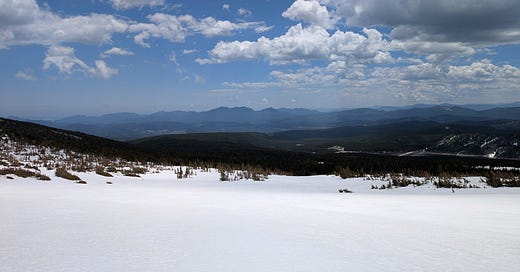



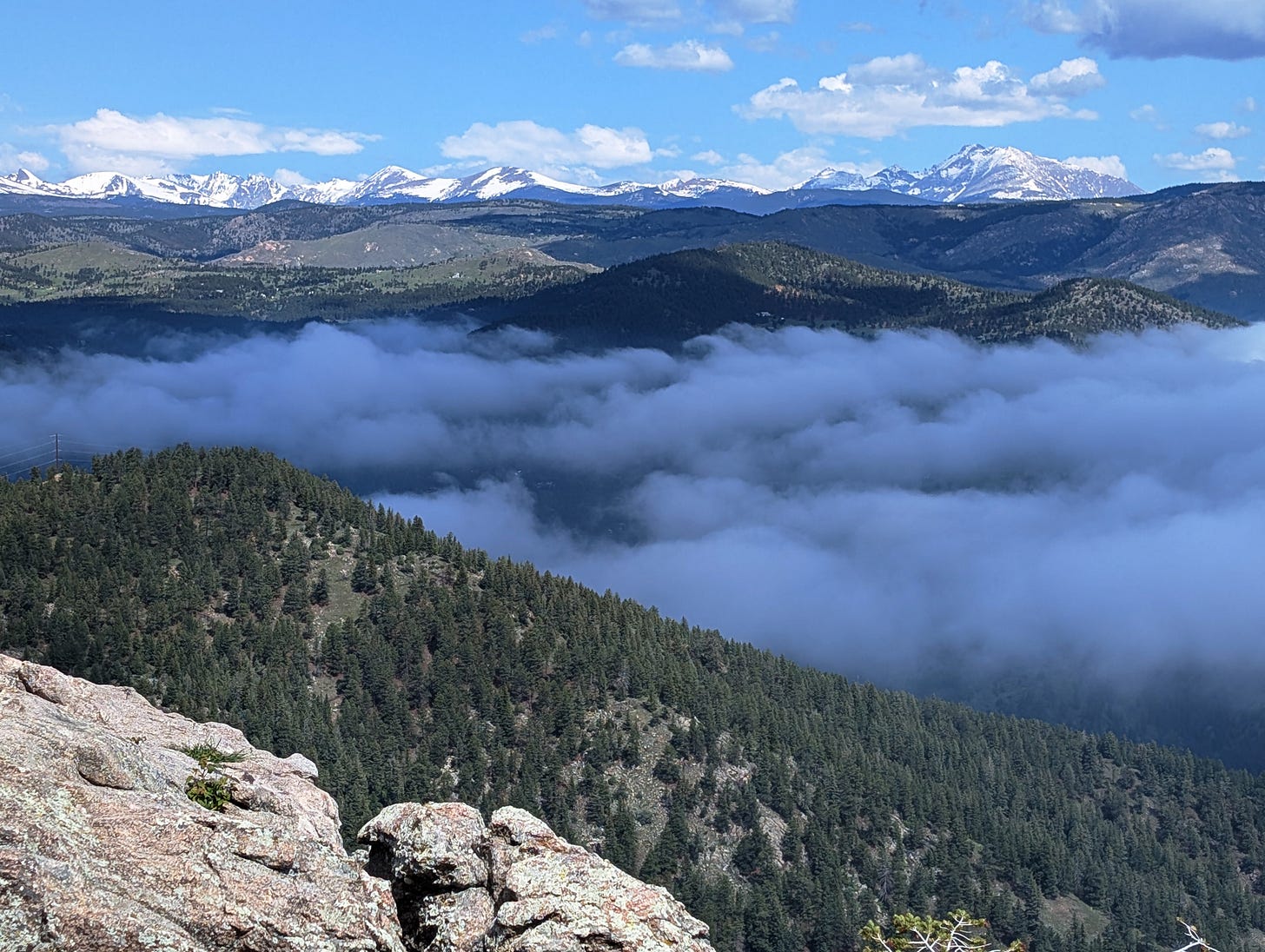
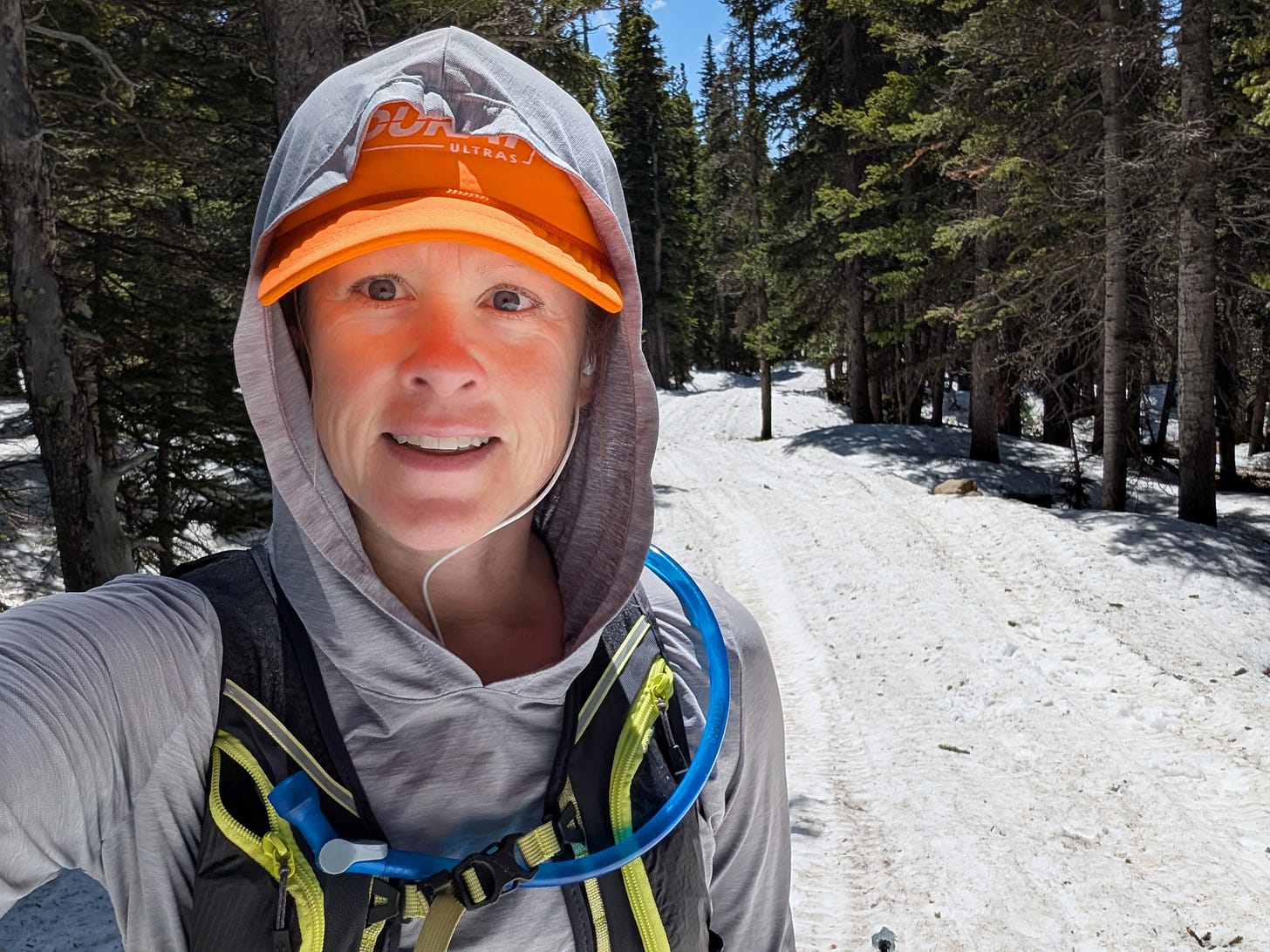
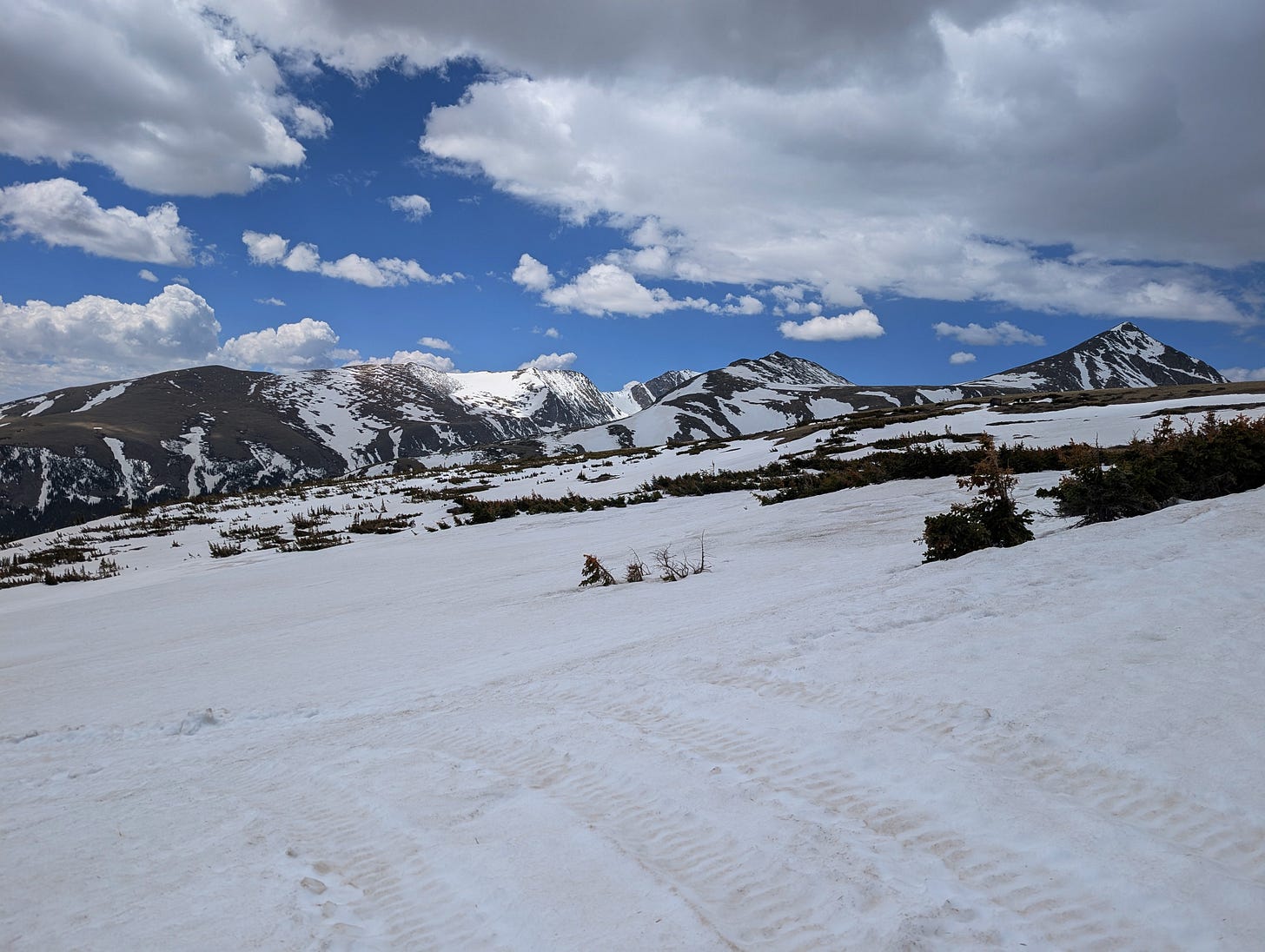
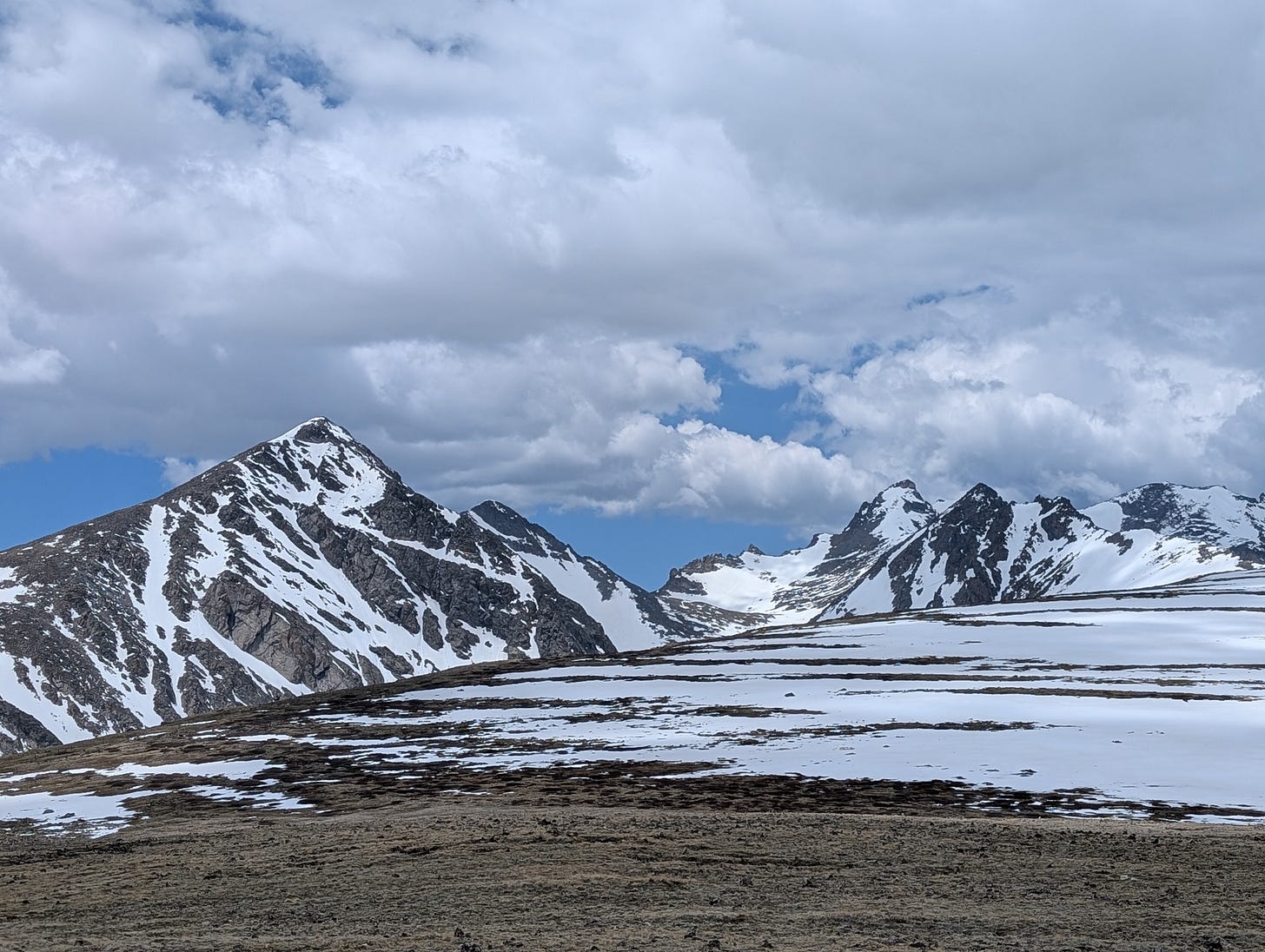
I feel this all on a personal level! While I don't have asthma, I loathe summer for many reason as well. My body cannot handle heat above 70 for extended periods of time, and I get raging headaches and back cramps no matter how much water and electrolytes I consume. By the time fall comes around, I feel so exhausted and drained. Winter is definitely my time to shine.
I am with you, sister. I loathe summer now, between being insanely uncomfortable and all but non-functioning in the heat thanks to peri/menopause and increasingly long, hot summers (and truthfully, autumns) when the threat of fire in our Southern California canyon is bonkers high. Summer is my off-season, too, and I often say I have Seasonal Affective Disorder in reverse this time of year. Growing up and living in the Northwest until I was nearly 40, I always longed for summer -- and often migrated south during interminable cold, rainy winters. And with increasing heat domes, long fire seasons, and terrible air quality in so many parts of the West nowadays, it's only getting harder to escape it when it's brutally hot here. Have you read the excellent book "The Heat will Kill You First" by Jeff Goodell? It's depressing, enlightening, and informative.
Thank you for saying these things out loud -- I often feel like the freak in the room who hates summer, so it's nice to know I'm not alone!